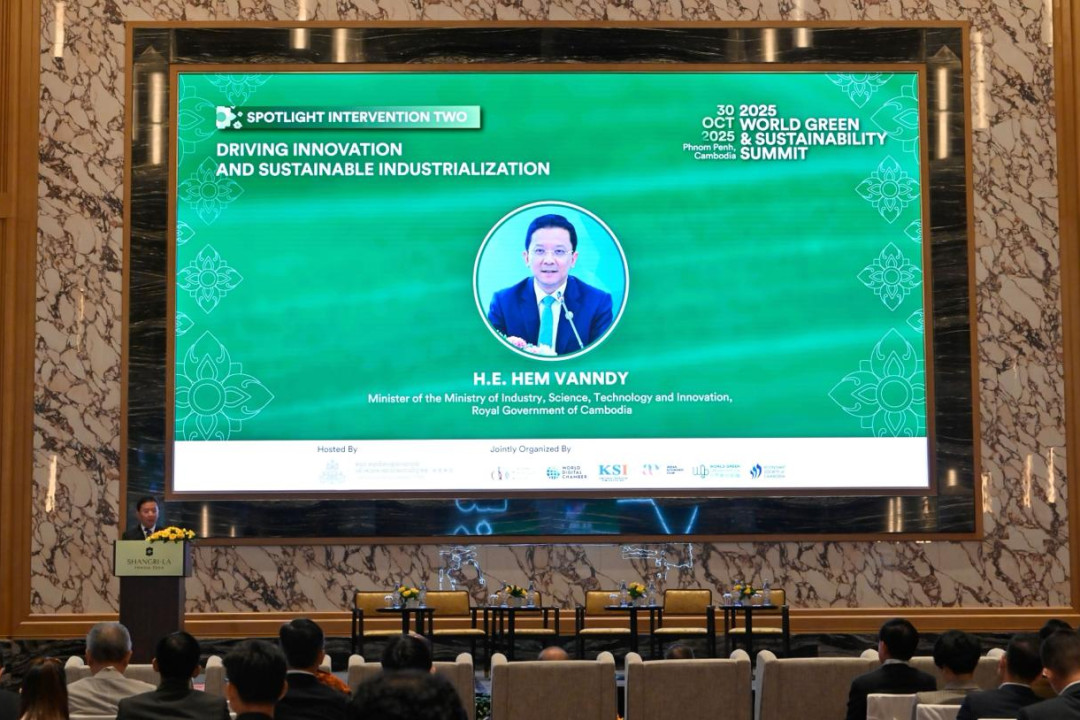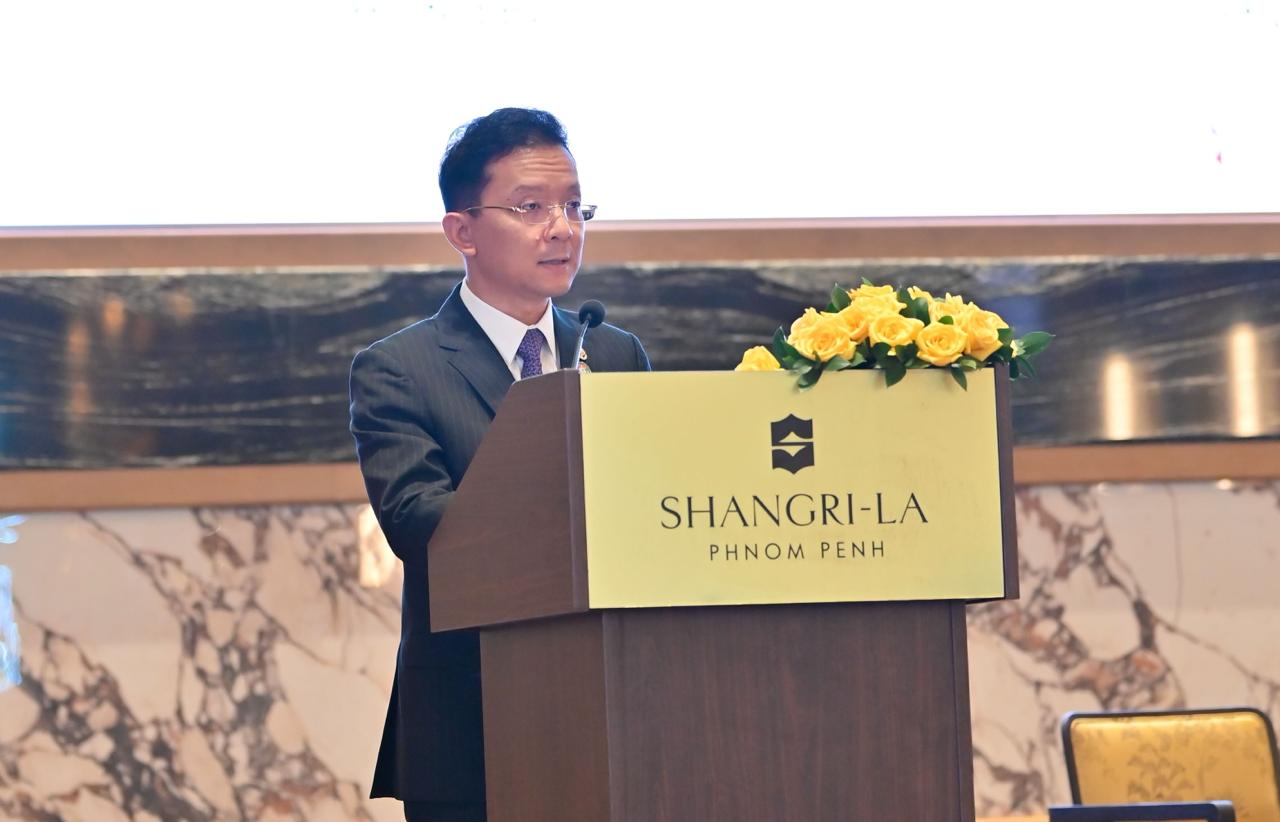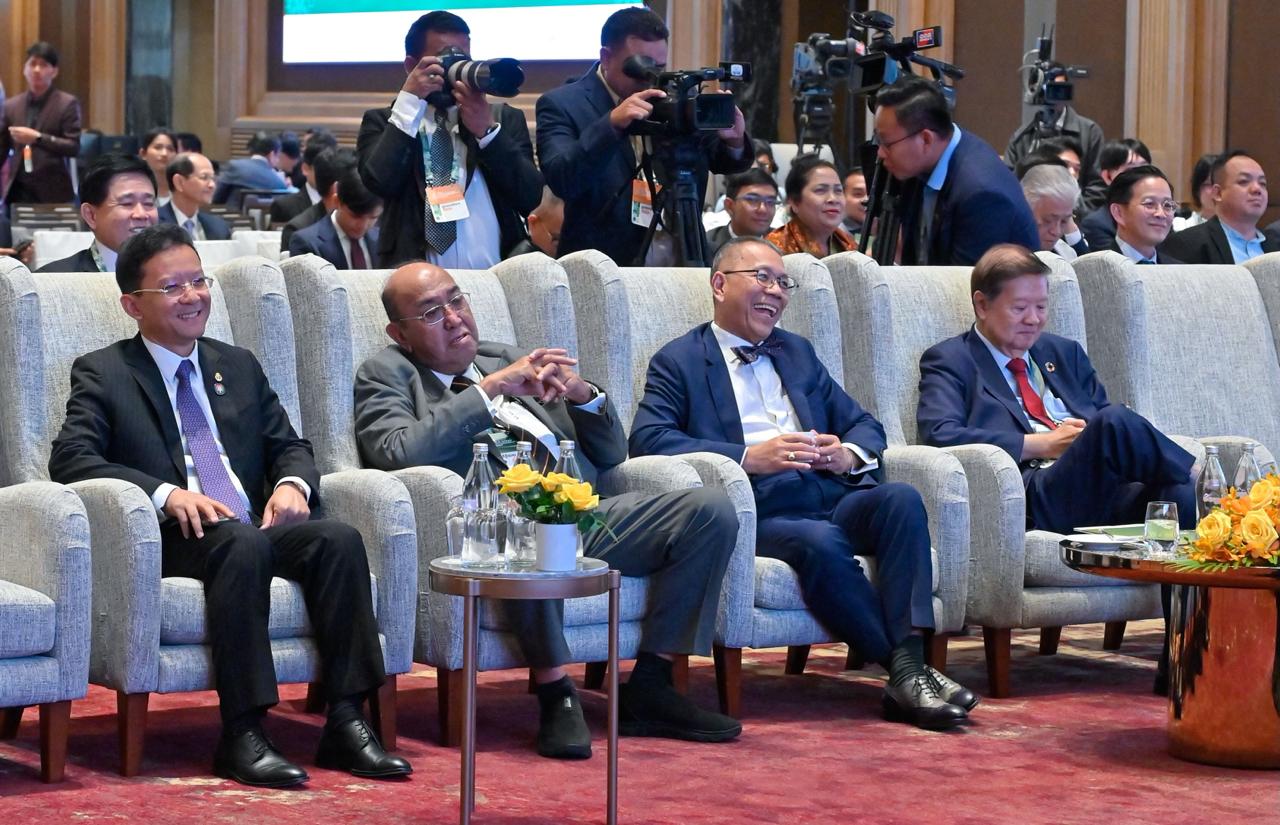Minister Hem Vanndy Highlights Circular, Greener Industry as Key to Post-LDC Growth

Cambodia is accelerating efforts to shift towards greener, more circular and technology-driven industrial growth as the country prepares for its post-Least Developed Country (LDC) future, the Minister of Industry, Science, Technology & Innovation (MISTI), H.E. Hem Vanndy, said at the 2025 World Green & Sustainability Summit in Phnom Penh.
Speaking to regional policymakers, investors, and global development partners, the Minister said the country aims to balance economic expansion with climate responsibility and rising market expectations.
“The challenge before us is not whether to industrialise, but how to industrialise sustainably, ensuring that innovation and environmental stewardship advance hand in hand,” he noted.
He pointed to national reforms and policy instruments—including the National Energy Efficiency Policy 2022–2030 and the Circular Strategy on Environment 2023–2028—that support decarbonisation, resource efficiency, and competitiveness.
“Our direction is clear: we will build industrial competitiveness through sustainability and innovation—by advancing smart factories, strengthening automation, and integrating emerging technologies such as artificial intelligence in the production line,” he added.

Minister Vanndy highlighted recent investment momentum in green manufacturing, including new energy-vehicle initiatives in Phnom Penh and the Sihanoukville Special Economic Zone, and acknowledged the role of partners such as UNIDO, SWITCH-Asia, and APO in helping Cambodian factories reduce emissions and operational costs while improving workplace safety and skills.
With Cambodia set to graduate from LDC status in December 2029, he said the transition places new demands on local industries to meet “higher-value, lower-carbon” global value chain requirements through strengthened standards, traceability, and human capital development.
The 2025 World Green & Sustainability Summit, held in Phnom Penh on October 30, for the first time, brought together government leaders, business executives, multilateral organisations, and sustainability experts from across the Asia-Pacific. It aimed to foster dialogue and partnership on climate-smart development, decarbonisation, circular economy investments, and the future of sustainable industrialisation.
This press release was supplied.

